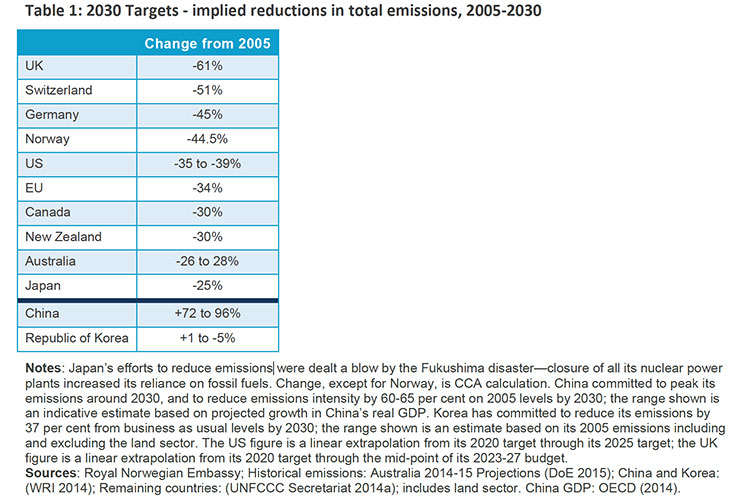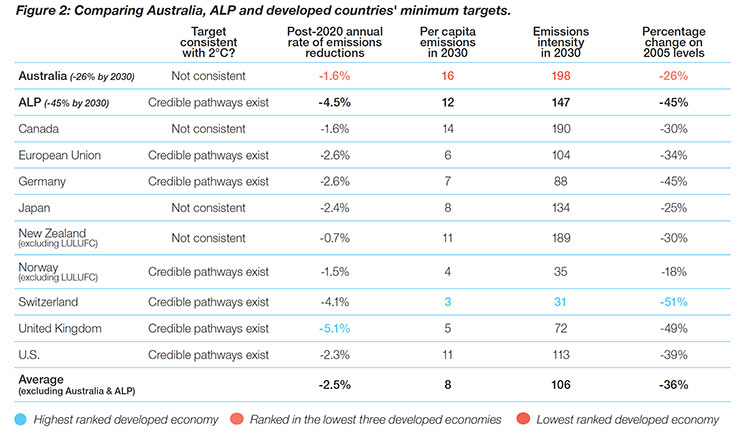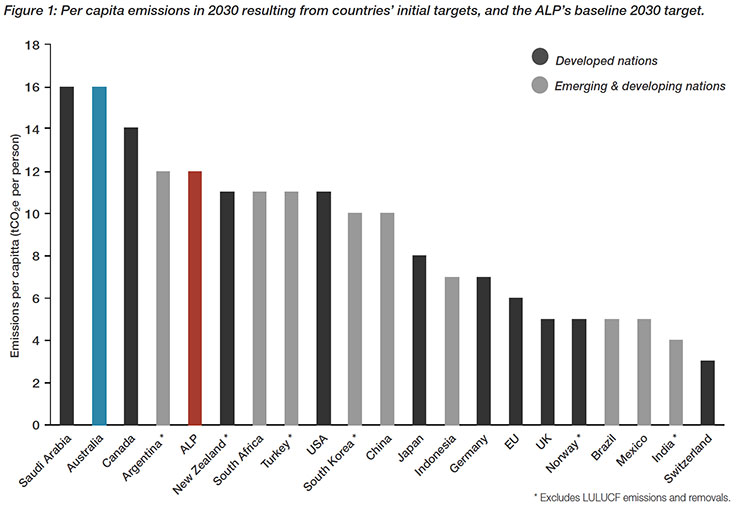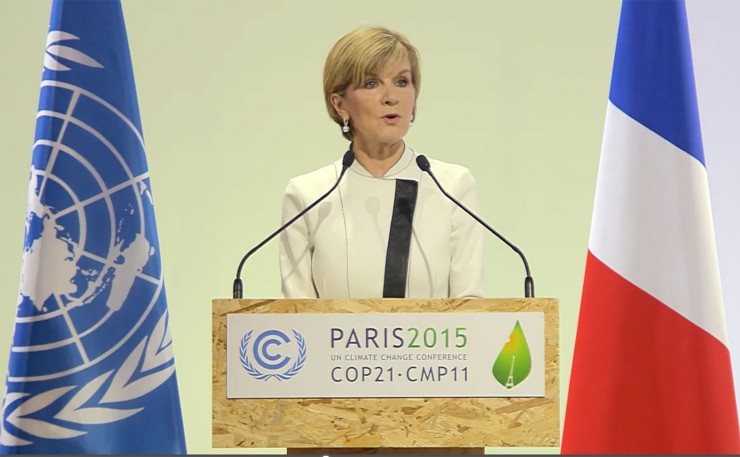The Foreign Minister should probably have saved some jet fuel, rather than continue to misrepresent Australia’s response to climate change. Thom Mitchell reports from Paris.
Foreign Minister Julie Bishop started work this week at make-or-break climate change negotiations entering their second week in Paris, and she quickly moved to reaffirm Malcolm Turnbull’s earlier assurances that Australia is seeking to place “innovation at the heart of our economy”.
“It will be innovation and technological breakthroughs that will ultimately be the game changer in our climate change response,” Bishop said on delivering Australia’s ‘National Statement’ to the United Nations conference.
Given Australia’s lack of ambition, we’d better hope it will.
As Bishop noted, the “Prime Minister spoke of Australia’s optimism, our commitment to gifting future generations the environment and economic future they deserve, and our unwavering belief in human capacity and innovation”.
Unfortunately neither Turnbull, nor Environment Minister Greg Hunt, have done anything to give substance to those hollow words. If her first day’s anything to go by, Bishop will continue to tread the same circular track.
Our emissions reduction targets continue to languish firmly at the back of the international pack, and those scavenging for hope amidst the Australian bluster will find nothing substantial in the way of new commitments that would bolster the legitimacy of Turnbull’s lofty oration.
Bishop declared our climate target for 2030, a 26 per cent reduction on 2005 levels, to be “ambitious”. To adopt a political chime popular in the era of Tony Abbot, when that target was created, nope, nope, nope.
They say a picture is worth a thousand words, so here’s one from the government’s independent advisory body, the Climate Change Authority, which describes just how recalcitrant Australia is:

And another, from the Climate Institute, a highly respected think tank:

As the World Wildlife Fund’s Kellie Caught has put it, “If other countries took on similar pollution reduction targets to Australia, the world would be on track to warm between three to four degrees.”
Of course, the whole point of the Paris climate summit is to keep the world’s average global temperature at least within two degrees of what they were before the industrial revolution.
More than 180 countries have submitted plans to the United Nations outlining what they will do towards achieving those ends. But as Bishop sagely noted, “this will not be enough to stay well below the two degree goal”.
At best, we’re looking at an increase of 2.7 degrees celsius, which is a good example of why the Foreign Minister’s celebration of the fact that Australia will “double the rate at which we reduce our emissions” is so meaningless.
To paper over Australia’s slovenly response to the already inadequate global effort, the government has taken to stressing Australia’s comparatively sharp reduction in per capita emissions. A popular claim is that our per capita reduction will be the second steepest in the developed world.
We’re one of the highest per capita emitters globally, and despite the government’s strident defence of its inaction, we are on track for this to continue out to 2030. As this graphic from the Climate Institute shows, repackaging our emissions reduction effort in per capita terms is more indicative of how far we have to go.

In this context, and given the Coalition’s strangulation of the Renewable Energy Target, it was somewhat audacious of Bishop to claim “Australia will lead by example in the way we invest in and use technology and increase collaboration between business, Universities and government”.
Just last week she was in Parliament confirming the Coalition’s continued support for another Abbott-era push, to abolish the Clean Energy Finance Corporation and Australian Renewable Energy Agency, the two key bodies working to drive innovation and uptake of renewable energy technologies.
But there is just one point of redemption the government has laid claim to which appears to conform with reality: Environment Minister Greg Hunt suggested to media last week that Australia is acting as a “shuttle between different countries” and trying to “broker” an ambitious agreement in Paris.
It’s just a pity we’re not leading by example, and showing some ambition ourselves.
Donate To New Matilda
New Matilda is a small, independent media outlet. We survive through reader contributions, and never losing a lawsuit. If you got something from this article, giving something back helps us to continue speaking truth to power. Every little bit counts.





